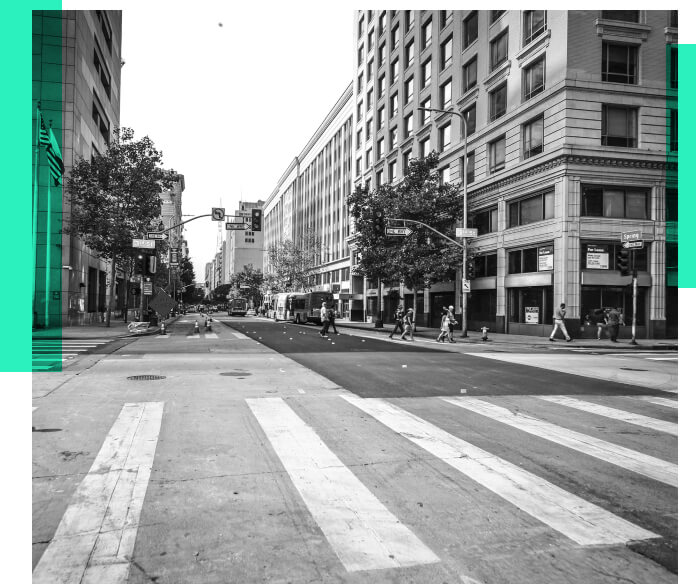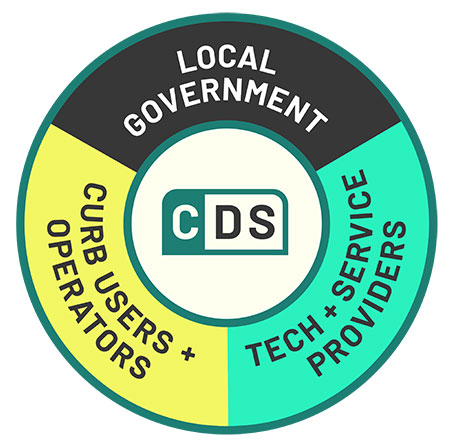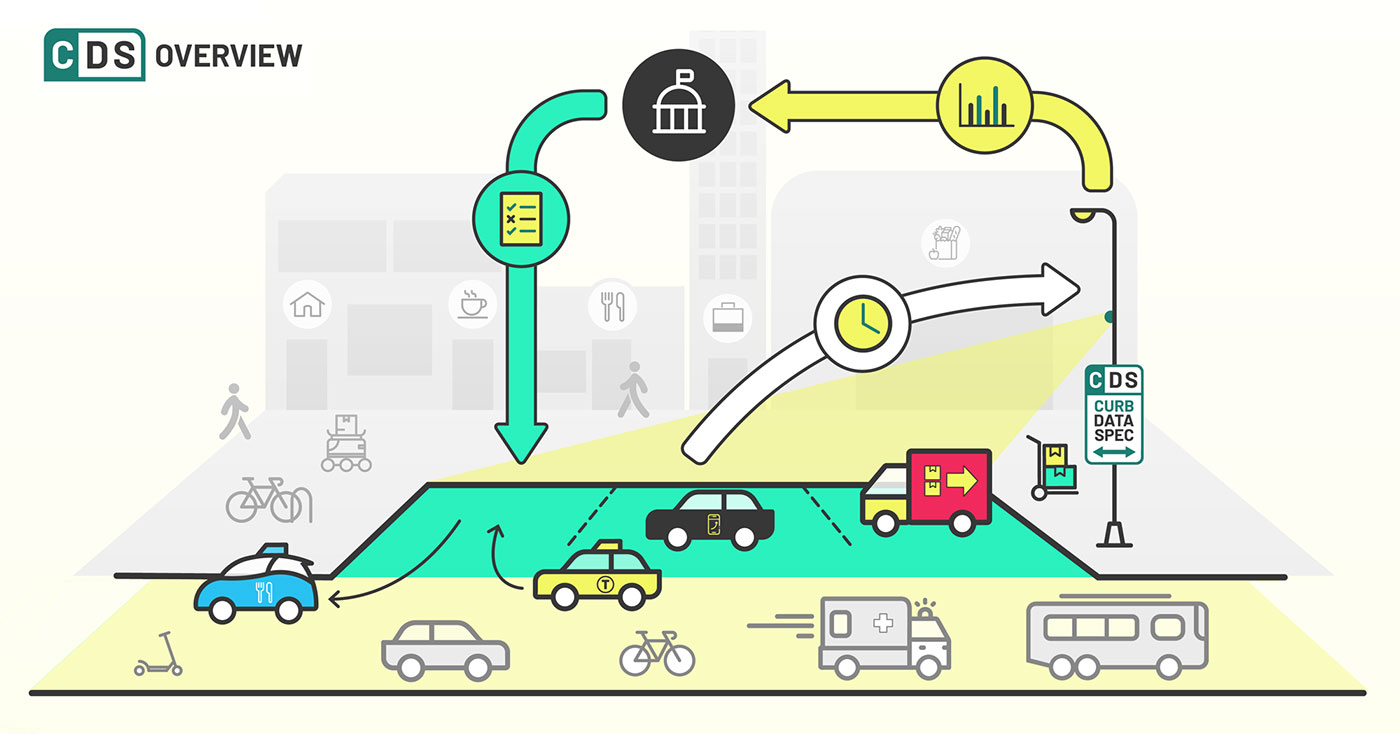About CDS
About CDS • Benefits of CDS • How it Works • Future of CDS

CDS —“Curb Data Specification”—is a digital tool that helps cities and companies pilot and scale dynamic curb zones. CDS provides a mechanism for expressing static and dynamic regulations, measuring activity at the curb, and developing policies that create more accessible, useful curbs.

CDS —“Curb Data Specification”—is a digital tool that helps cities and companies pilot and scale dynamic curb zones. CDS provides a mechanism for expressing static and dynamic regulations, measuring activity at the curb, and developing policies that create more accessible, useful curbs.

Managing the curb to deliver more
We believe that public streets and sidewalks can be safer, more dynamic, and deliver more value to residents and local businesses. That’s why the OMF is building digital tools to help cities effectively manage curb space.
Urban curb space has long been a scarce resource. The most in-demand loading zones today are sites where double parking and congestion lead to safety risks and lost value for businesses and delivery services. Governed by complex rules communicated by signage and physical infrastructure, curb management tools have not always kept pace with changing demand driven by new mobility and on-demand services; alternative uses of the public right of way like slow streets, outdoor dining, and parklets; and increased desire for road space focused on sustainable transportation. As the demands placed on urban curb space evolve, so too must the tools we use to manage it.

Digital tools for a changing world
Cities around the world recognize the need to develop a common curb data standard that gives them the tools and information to enact major curb management projects and support policy innovation. Businesses also recognize that digital curb tools drive efficiency for all.
The Curb Data Specification (CDS) connects public agencies with private companies and aligned
nonprofits, giving them the common language they need to:
Understand
how and by whom the curb is used
Optimize
incentives and policies governing access to curb space
COMMUNICATE
regulations to curb users in real time
MEASURE IMPACT
by calculating ROI and curb productivity
Benefits of CDS
How CDS Benefits Cities

CDS gives local governments the tools to drive data-informed change. It allows cities to map curb regulations and capture data about how the curb is used. Capturing those insights allows policies to adapt to deliver the most public value. As a common standard, CDS unlocks an ecosystem of tools being built to help cities manage the digital curb and communicate digitally with curb users.
How CDS Benefits Companies

CDS gives curb users real-time understanding of where the nearest available curb spaces are and what rules apply to them. And when cities use CDS to convey demand-responsive curb regulations, curb users inevitably get access to more spaces when and where they are needed. Ultimately, CDS sets the stage for cities to adapt the curb to support the innovations in mobility, delivery, and commerce that cutting-edge companies are driving.
How CDS Benefits Communities

CDS gives residents public spaces that better reflect community priorities like safety and environmental sustainability. Reduced double parking and congestion keeps residents and drivers safe, advances sustainability, and lowers the costs local businesses incur as a result of parking violations.
Building better, together
The call for this work came from cities who want to use data standards to advance curb management. The OMF provides facilitation and a governance model that allows curb stakeholders to come together to build tools that meet the needs of cities and industries alike. CDS is developed as an open standard by a public Curb Management Working Group that began work in 2020 and includes 160+ leaders of major US cities, transit systems, global automotive and delivery enterprises, and technology startups.

First stop: loading zones
Loading zones represent an opportunity to develop tools that can deliver meaningful change in the near term. CDS was initially developed to help cities and companies pilot and scale dynamic curb zones that optimize commercial loading activities of people and goods, and measure the impact of these programs. These high-demand curb spaces provide a targeted area to advance shared goals like safety, sustainability, and accessibility. With this initial focus on loading zones, we’re laying the groundwork to extend CDS to more curb use cases in the future.
How CDS works
At its core, CDS is a set of APIs (Application Programming Interfaces) which allow cities to digitally represent their curb space and communicate with curb users in different ways:

CURBS API
A standard way for cities to digitally publish curb locations and regulations, which can be shared with the public and with companies using curb space.

EVENTS API
A standard way to transmit real-time and historic commercial events happening at the curb to cities. Event data can be derived from company data feeds, sensors, check-ins, and other city data sources.

METRICS API
Track curb usage session details and define common calculation methodologies to measure historic dwell time, occupancy, usage and other aggregated statistics.

CDS in practice: use cases
CDS’ flexibility means it can be used in many scenarios, including:
- Digitally sharing regulations, including loading zone rules and locations
- Determining real-time curb status
- Tracking and analyzing curb usage
- Responding to curb violations and improving curb enforcement
- Optimizing curb usage and access to meet policy goals
Future of CDS

For cities, curb users, and technology providers to deliver better outcomes, they need a common language. CDS is that common language. We see a future where cities have a kit of tools that allow them to respond to changing demands for the public curb in real time. Be part of this future by implementing CDS and getting involved in the Curb Working Group’s critical work.
A big part of the OMF’s mission is to equip cities with the support and resources they need to implement data standards, and keep the information they handle safe and secure. Explore the specification and other OMF resources:
